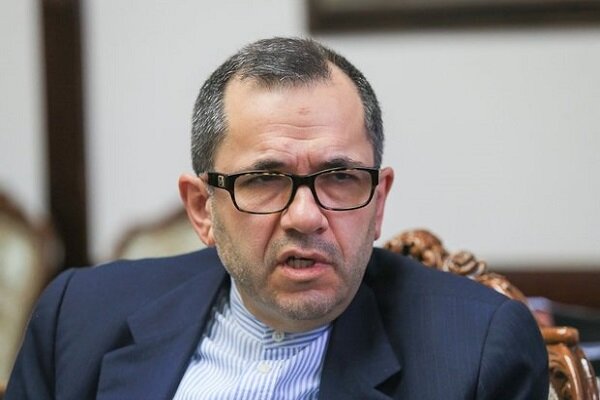Diplomat says Iran demands diplomatic guarantees, confirms US message exchange via intermediaries

TEHRAN – Iranian Deputy Foreign Minister for Political Affairs, Majid Takht-Ravanchi, confirmed on Tuesday that Tehran and Washington are exchanging messages through intermediary nations, while simultaneously laying out stringent conditions for any future direct negotiations following the U.S.-Israeli "betrayal of diplomacy" with a 12-day aggression against Iran.
"Iran and the United States are exchanging messages through intermediaries," Takht-Ravanchi stated during an interview with Turkey's Habertürk TV in Istanbul.
The Iranian diplomat made the remarks following a round of discussions with the E3 countries (France, Germany, and the UK) in Istanbul, described as part of a continuous process at the deputy foreign minister level.
He emphasized that Iran's core positions remain unchanged: any agreement must include the lifting of all U.S. and EU sanctions, which he termed an "indispensable element," and affirm Iran's right to conduct uranium enrichment domestically for peaceful purposes under the Nuclear Non-Proliferation Treaty (NPT). "Zero enrichment is impossible and unacceptable for us," he stressed.
The deputy FM provided crucial context for Iran's current stance, recalling the recent breakdown in diplomacy.
He referenced the indirect negotiations mediated by Oman between Iran and the U.S., which encompassed five rounds aimed at reaching a nuclear deal.
However, Takht-Ravanchi asserted that this diplomatic process was violently disrupted.
"We were in the middle of the negotiation process when we faced attacks first by Israel and then by the U.S.," Takht-Ravanchi declared. "This was a betrayal of diplomacy. This was an attack on diplomacy.
He characterized the U.S.-Israeli strikes as "unprovoked and naked aggression" against the Iranian people, resulting in over 1,064 martyrs, mostly civilians, and thousands wounded.
Iran views these attacks as a flagrant violation of international law and the UN Charter, fundamentally undermining trust.
Given this experience, Takht-Ravanchi outlined clear prerequisites for re-engaging with the U.S. "Before starting a new round of negotiations with the U.S., we must receive guarantees that we will not face similar attacks again," he insisted. "The non-repetition of betrayal of diplomacy is an essential condition for us."
He emphasized that Iran would not be lured into talks only to be "surprised" by military strikes again.
Furthermore, he stressed that any dialogue must be meaningful and based on mutual respect and the "win-win principle," where both parties feel they gain something.
"We do not want dialogue just for the sake of 'having dialogue'. Dialogue must produce a result that satisfies both sides," Takht-Ravanchi explained, firmly rejecting any notion of accepting U.S. diktats. "We cannot enter into a real dialogue without being sure that the negotiations will continue and without being convinced that the U.S. will not impose its will."
Addressing recent claims about Iran's nuclear program, Takht-Ravanchi reiterated Iran's long-standing position. "No, the fatwa [by the Leader of the Islamic Revolution banning nuclear weapons] is still valid. Our stance has not changed. We are not pursuing nuclear weapons," he stated, affirming that nuclear arms have no place in Iran's defense doctrine.
He defended Iran's right to peaceful enrichment on its soil under the NPT, dismissing calls for zero enrichment.
Regarding the damage inflicted by the U.S.-Israeli attacks on Iranian nuclear and military infrastructure, Takht-Ravanchi acknowledged it was "serious and heavy," but deferred detailed assessment to the Atomic Energy Organization of Iran (AEOI).
He confirmed that the International Atomic Energy Agency (IAEA) was aware of the locations of nuclear materials prior to the attacks.
The interview also covered broader regional issues. Takht-Ravanchi strongly condemned the ongoing Israeli assault on Gaza, describing it as "genocide" enabled by U.S. support and the inaction of the UN Security Council.
"If the international community, especially the countries of the region, does not show unity in defending Palestine and condemning Israel, Israel will feel free to act," he warned.
Takht-Ravanchi called for unified regional action and pressure on the U.S. to halt weapons supplies and diplomatic cover for Israel. "Otherwise, Israel may think of attacking other countries. This would be an extremely dangerous scenario not only for the Middle East [West Asia] but for the entire region," he cautioned.
Leave a Comment